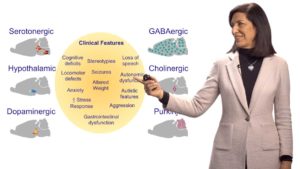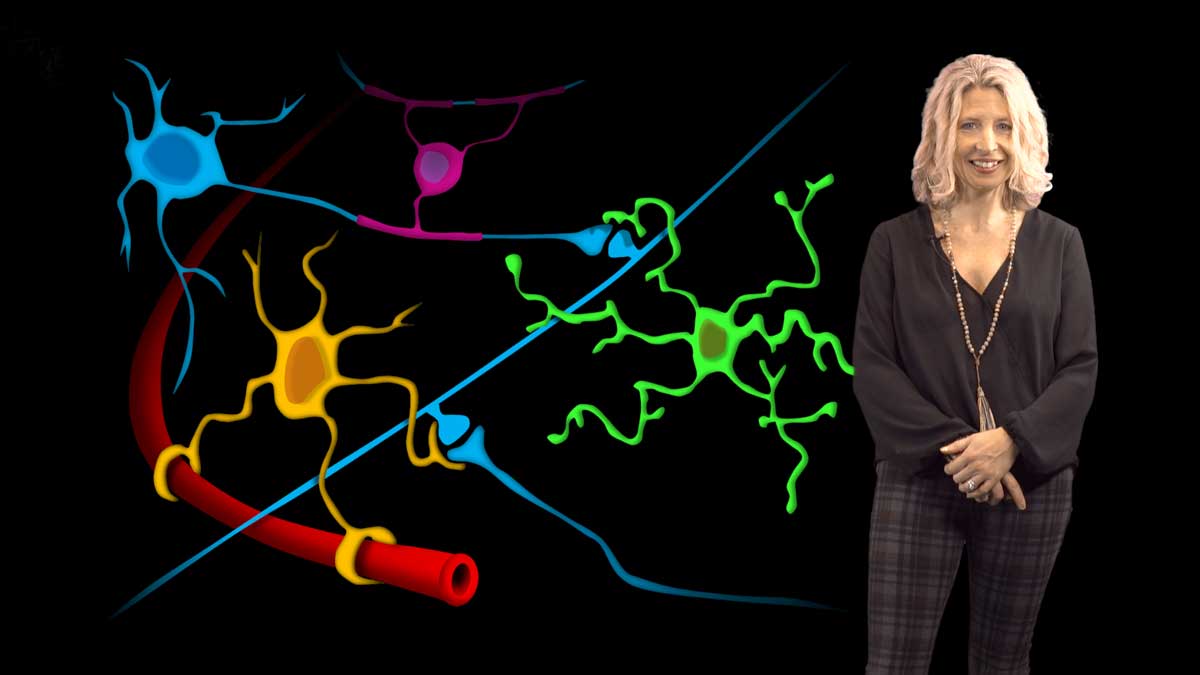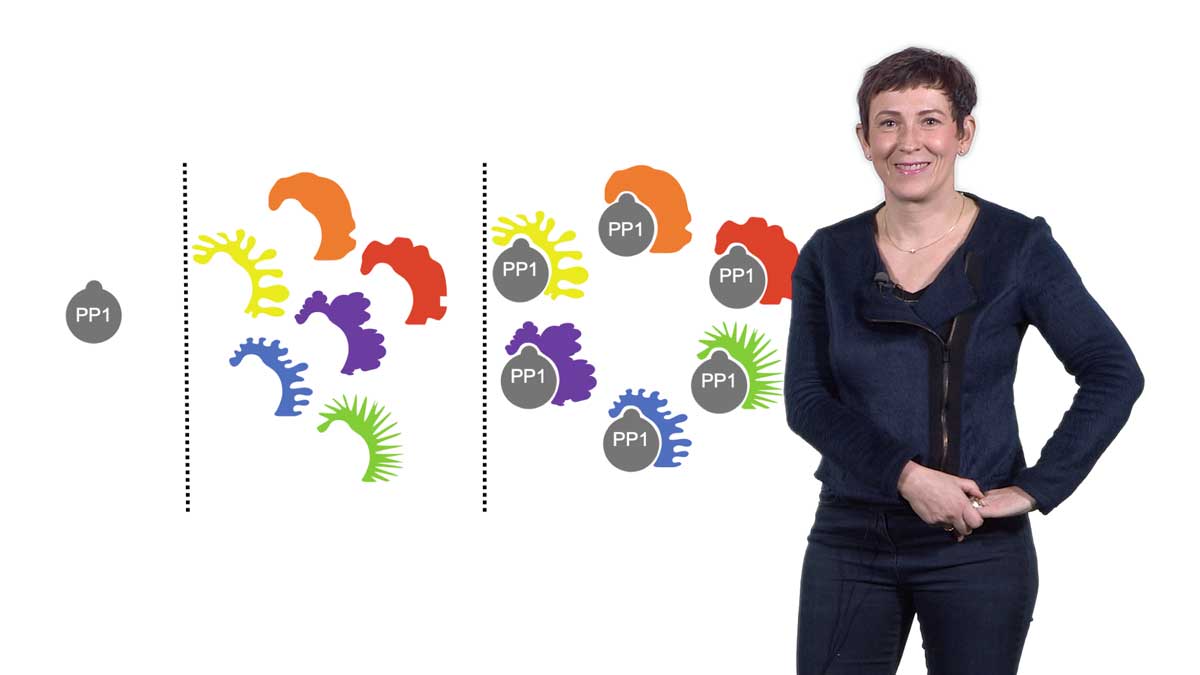Talk Overview
Dr. Huda Zoghbi’s work has provided insight into Autism Spectrum Disorders (ASD) by focusing on Rett Syndrome, a postnatal progressive neurological disorder. By studying the genetics of Rett Syndrome, her group made the seminal discovery of X-linked Methyl CpG-binding protein 2 (MECP2) as the gene that causes Rett Syndrome. Zoghbi’s group showed that the severity of the disease was highly dependent on the amount of functional MeCP2 protein expressed. Females, who carry one normal and mutant MECP2 allele typically suffer from Rett syndrome, but the amount of functional protein is influenced by X-chromosome inactivation, and girls with more cells expressing normal allele have milder features. Surprisingly, they also showed that duplications spanning MECP2 can cause a Rett-like progressive neurological disease, highlighting the importance of MeCP2 levels for neural functions. Zoghbi describes how these findings have spurred new research into how MeCP2 affects postnatal development and brain function.
In her second lecture, Zoghbi explains how MeCP2 molecularly modulates neuronal function. Their studies uncovered a critical link between cytosine methylation, MeCP2, and the methylating enzyme Dnmt3a, in Rett Syndrome. They hypothesized that MeCP2 partially causes Rett-Syndrome symptoms by failure of reading methylated DNA marked by Dnmt3 and indeed showed that Dnmt3-dependent mCH plays a central role in Rett pathogenesis.
In her third lecture, Zoghbi explores possible therapies for MECP2 disorders. First, using Deep Brain Stimulation (DBS), Zoghbi’s team together with collaborator Dr. Jianrong Tang were able to rescue learning and memory deficits, enhance neurogenesis, correct abnormal neural network activity, and improve MeCP2-linked gene expression changes in a mouse model of Rett Syndrome. Then, she discusses two approaches to normalize the MeCP2 protein in MECP2 duplication mice: by deleting the duplicated MECP2 gene in the genome, or by decreasing MECP2 mRNA levels using antisense-oligonucleotides. Even though these two approaches seem to rescue developmental issues caused by MECP2 duplication, titrating MeCP2 levels is required in order to avoid Rett-like symptoms caused by lowering the protein too much.
Speaker Bio
Huda Zoghbi

Dr. Huda Zoghbi is the Ralph D. Feigin professor at Baylor College of Medicine, an investigator at the Howard Hughes Medical Institute, and the director of the Jan and Dan Duncan Neurological Research Institute at Texas Children’s Hospital. She started her studies in biological sciences and did one year of medical school at the American… Continue Reading












Leave a Reply